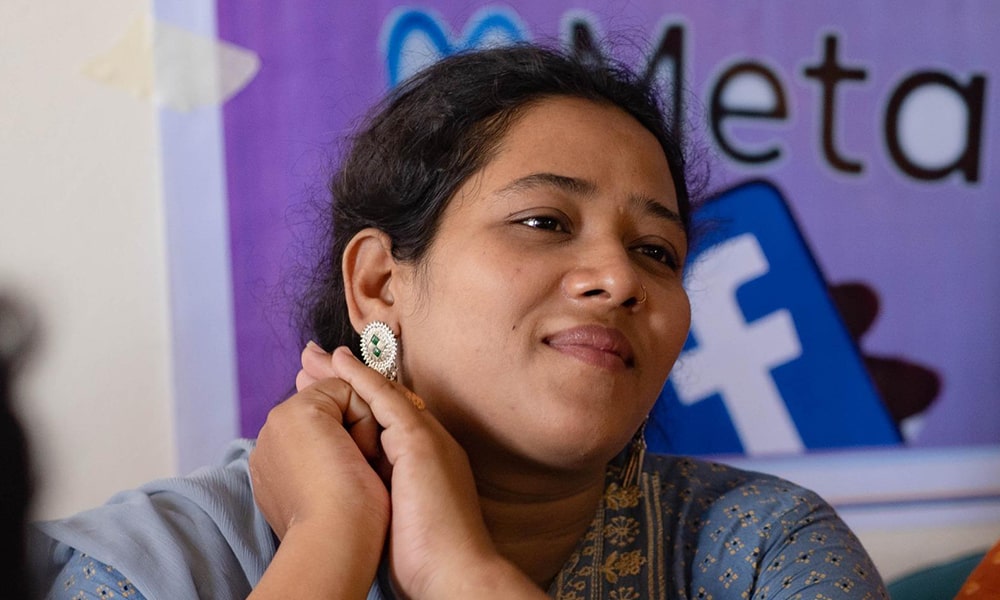By: Richa Macsuedon, Senior Programme Coordinator for HomeNet South Asia
A 30-year-old home-based worker (HBW) from the Jatrabari cluster in Dhaka, Laiju Akter has transformed her life and the lives of countless others through her unwavering determination and leadership.
Laiju and her Early Experiences
Starting as a ball press worker in the garment accessories industry, Laiju’s early life was filled with challenges. She dropped out of school in eighth grade, married young, and soon faced violence and abuse from her husband. Left as a single mother after her divorce, with a young daughter to care for, Laiju faced severe financial and social challenges. However, her story was just beginning.
The Start of a New Chapter
In 2013, Laiju joined the Coalition of the Urban Poor (CUP) as a home-based worker group member and a volunteer for the Bangladesh Organization for Social Change (BOSC). This decision marked the beginning of her transformative journey. Laiju received extensive training from CUP and its partners, including the OSHE Foundation. She learned about leadership, gender-based violence prevention, and organising for social change, which empowered her to step into the role of a cluster leader.
Laiju’s leadership skills flourished. Not only did she continue working as a ball press operator, but she also returned to her education, eventually completing her degree. Today, she is happily remarried to a supportive husband, raising her daughter from her first marriage in a stable and loving home.
As the cluster leader of Jatrabari, Laiju now leads over 1,000 home-based workers. Many of them are young women facing harassment and violence at work and home. But Laiju’s efforts to combat violence and establish the rights of home-based workers has profoundly impacted her community.
Transformational Impact
One of Laiju’s most significant achievements is establishing a Violence Against Women (VAW) committee in her cluster. Through this committee, Laiju and her team work tirelessly to prevent early marriages and respond to incidents of violence against women home-based workers. They take immediate action when violence occurs, providing support through legal aid, engaging with the police, and collaborating with NGOs like Ain o Salish Kendra (ASK) and Bangladesh Legal Aid and Services Trust (BLAST). Laiju has become a trusted advocate for victims, ensuring their voices are heard and justice is served.
Laiju is also a powerful advocate for improving working conditions for home-based workers. She has successfully lobbied factory owners in the ball press industry for better wages, regular work, maternity leave, and improved sanitation facilities for women workers. Her efforts have led to installing toilets in several factories, significantly reducing workplace harassment and violence.
Laiju’s work extends beyond her cluster. As a grassroots master trainer, she provides training to home-based workers in other areas, helping them organise and establish their networks. She also collaborates with local stakeholders, including health service providers, social service officers, and police stations, to ensure HBW families access essential services like healthcare, safety net programs, and relief aid.
The impact of Laiju’s leadership is undeniable. Early marriage has been almost entirely eradicated in the Jatrabari area, and workplace harassment and violence have decreased significantly. Women workers are now receiving regular pay, and local stakeholders, from factory owners to community leaders, have developed a deep respect for Laiju and her team. Her ability to build solid relationships and mediate conflicts has earned her widespread recognition as a true change-maker.
Laiju Akter’s story is one of triumph over adversity, but more importantly, it is a story of empowerment.



